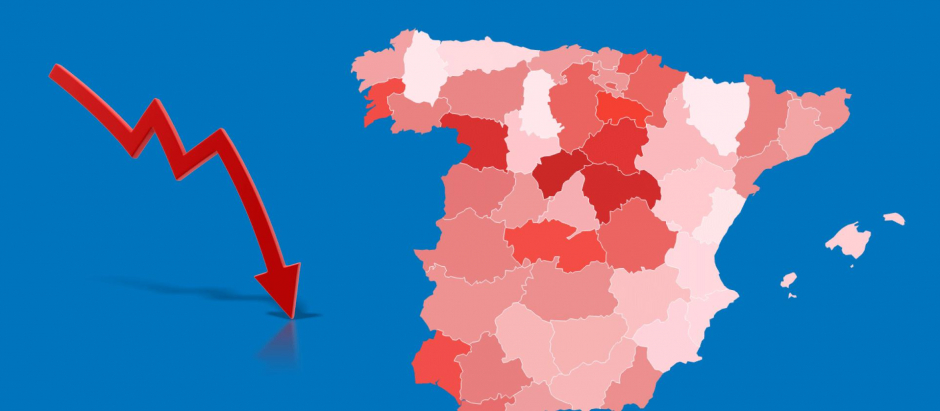Births are on their way to becoming a rare bird in Spain. The pandemic has exacerbated a phenomenon that has been dragging on since the beginning of the last decade and that at the moment shows no signs of changing: between January and June there were only 159,705 births, practically the same as in 2021 (+0.13%), when the minimum of the historical series was reached. Despite this, some territories resist this decline in the birth rate better than others.
In the first half of the year, barely twenty provinces managed to improve their 2021 figures. Among them, Palencia, Teruel and Lugo, where the number of births rose by more than 10%. The birth rate also rose, more modestly, in Madrid (+5%), Barcelona, Valencia and Alicante.
The scenario in most of the provinces of the peninsular interior was very different. Women of childbearing age in Segovia and Guadalajara had up to 14% fewer children than the previous year, while in Seville 500 fewer births were quantified. However, the drop in the birth rate is even more evident when comparing the data of the last few months with that of a covid-free 2019.
No province has managed to recover pre-pandemic birth figures. Among the most affected areas are once again the provinces surrounding the Community of Madrid –Segovia (-25%), Guadalajara, Soria or Toledo–, as well as the Canary archipelago, La Rioja and Huelva.
Even so, the biggest drop has been experienced by Melilla, where births have fallen 29% in just three years. Until 2020, the autonomous city was the municipality with the highest fertility rate in Spain, a consideration that El Ejido currently holds, with a rate of 53 births per thousand women.
The capital of the Poniente Almeriense region and Orihuela (Alicante) are the only municipalities with more than 50,000 inhabitants that did not see their fertility rate decline in the second half of the last decade. On the contrary, Parla, Valdemoro, San Sebastián de los Reyes (Madrid), Ceuta, Algeciras (Cádiz) or Paterna (Valencia) suffered a resounding drop in this demographic indicator.
as already explained The debatethe concatenation of an economic and a health crisis in a very short period of time and the limited number of women who are currently of reproductive age are among the main causes of this problem.
At the tail of Europe in fertility
In fact, Spain is the second country with the lowest fertility in Europe, with a rate of 1.19 children per woman, which places it only ahead of Malta (1.14). Likewise, it is far from the figures of France (1.83) –European leader–, Germany (1.53) or Portugal (1.4). These last two countries have managed to increase their fertility rate even in these years of crisis, as have others such as Hungary or Slovakia.
This is not the case of Spain, which has gone from 1.37 to 1.19, and is far from the 2.1 children per woman that guarantee population stability. The World Population Prospects report that the UN released a few weeks ago already predicted that Spain would lose 35% of its population during this century due to low birth rates, going from 47 to just 30 million inhabitants.


















